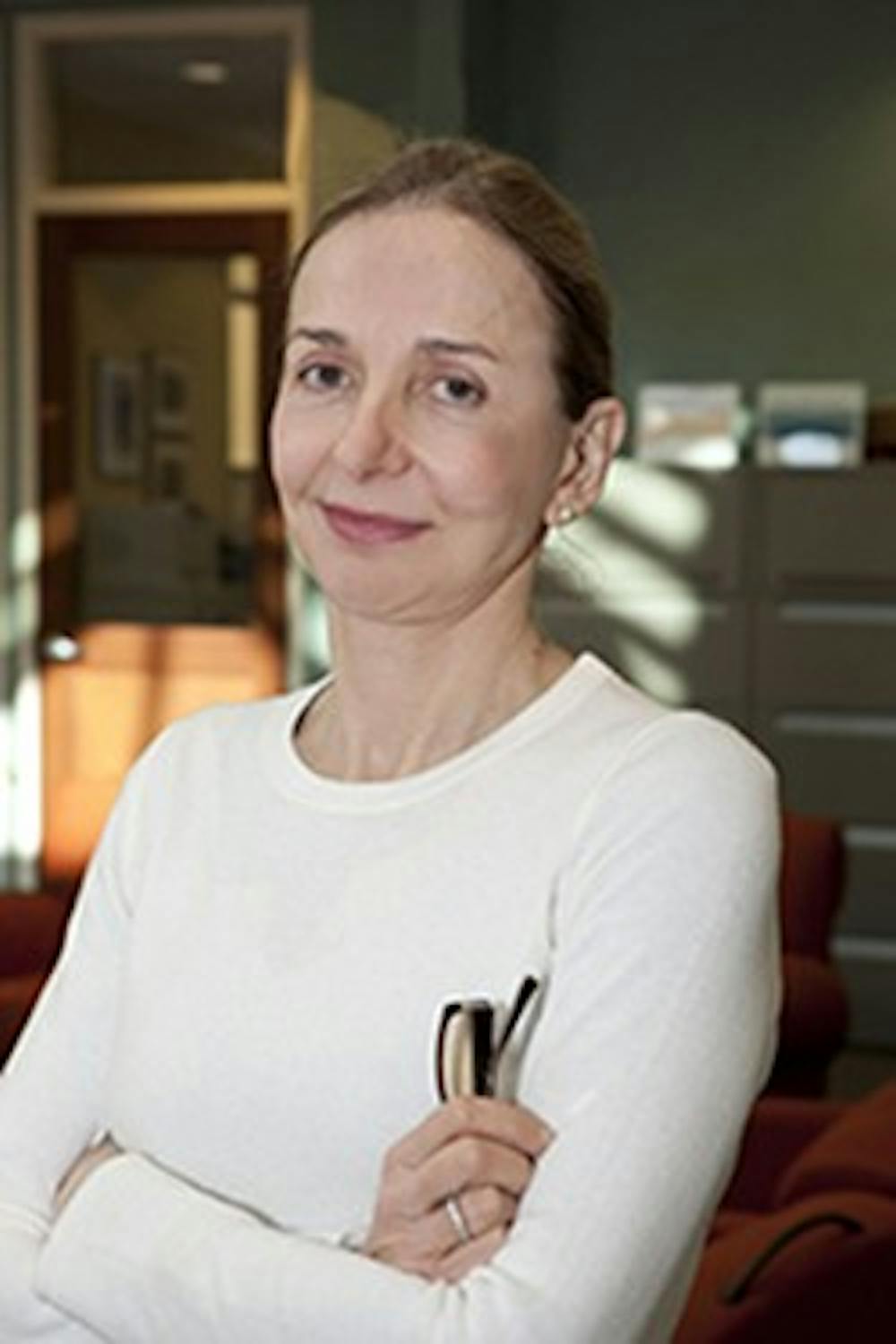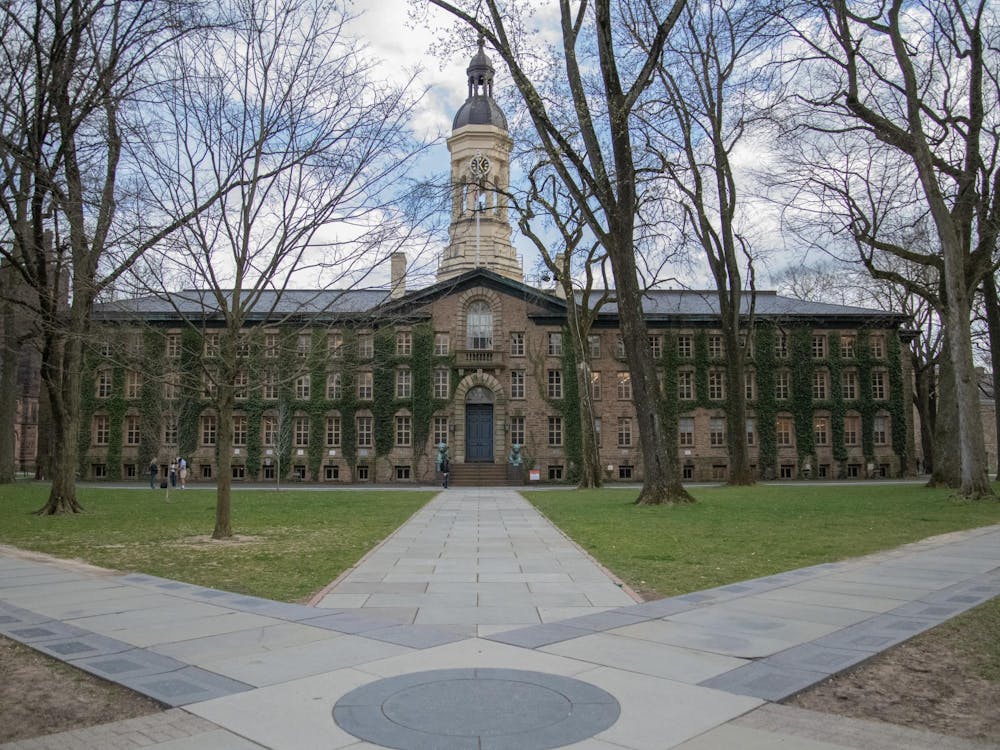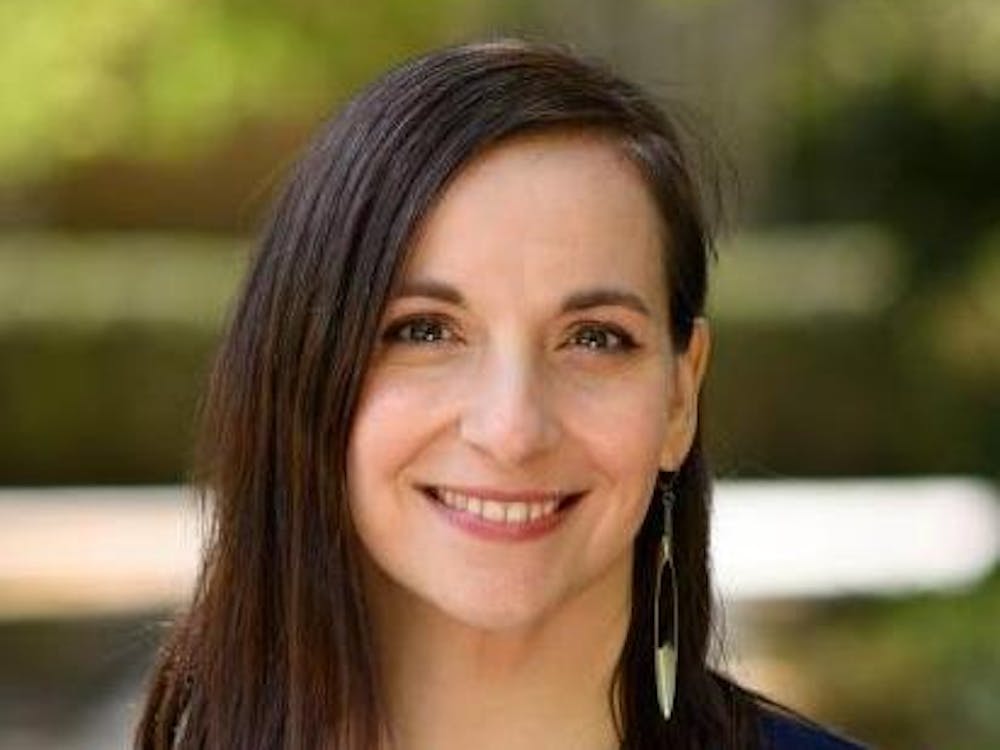Isabelle Clark-Decès, professor of anthropology and director of the Program in South Asian Studies, died last Thursday after a fall in Mussoorie, India, where she was leading a Princeton Institute for International and Regional Studies Global Seminar.
She was 61 years old.
After joining the University faculty in 1996, Clark-Decès taught undergraduate and graduate courses on India, ritual, kinship, and religion and advised Ph.D. candidates. Her peers attribute much of the rise of the South Asian studies program to her dedication and infectious energy.
Mark Beissinger, professor in the Department of Politics and former director of PIIRS, said that as chair of the South Asian studies program since its inception in 2007, Clark-Decès was largely responsible for developing the program from a nascent name to an active presence at the University.
Benjamin Conisbee Baer, associate professor of comparative literature and executive member of the Program in South Asian Studies, echoed this sentiment.
“The South Asian studies program would not exist without Isabelle,” he said. “It would not exist without the energy and determination that she put into it. She’s the person who made it what it is, and I think that speaks to her capacity not only as an intellectual but also as an institution-builder.”
Baer added that it was always a pleasure to attend executive meetings because Clark-Decès led them with good directorship and a sense of creative chaos. Baer noted that although she was working with scholars from a variety of departments, she managed to bring the group together and make it work.
“I found that to be an extremely admirable quality and that she could do that with such seriousness and humor,” he said. “Especially as a woman professor dealing with basically a lot of senior male professors, she had an extraordinary talent.”
Azza Cohen ’16 majored in history and completed the South Asian studies certificate program. She said she greatly appreciated Clark-Decès’ willingness to support her intellectual endeavors in any way she could.
“She was always incredibly kind and supportive,” she said. “I wasn’t an anthropologist like her; I didn’t ever take a class with her, but she always made room for me in South Asian studies and these projects I wanted to pursue.”
In her junior year, Cohen made a documentary that followed individuals fighting for justice for survivors of human trafficking in India. She said that Clark-Decès asked to use the documentary in her class to discuss the film’s visual ethnography.
“Not only did that feel incredibly special to be a student and have your work used in a curriculum, but she also brought me into her class and had her students ask me questions about my filmmaking process,” Cohen said.

She added that Clark-Decès organized lunches and “chai” meetings where undergraduate students, graduate students and professors could informally meet and chat to learn about one another's work, going out of her way to make the South Asian studies program feel like a real community.
Cohen is a member of the University Board of Trustees and a former columnist for The Daily Princetonian.
Carol Zanca, manager of the Department of Anthropology, said the department’s home — Aaron Burr Hall — will not be the same without her lively presence.
“Professor Isabelle Clark-Decès was a life force in the department,” she said. “From her riveting job talk 22 years ago to her current Global Seminars, she was a vibrant and engaging teacher and mentor.”
Erin Raffety GS ’15, who earned her Ph.D. as an advisee of Clark-Decès, described her as not only an advisor, but also a true mentor who had been with Raffety in every step of her academic career as well as the biggest moments in her life. She said Clark-Decès inspired confidence in others through her own confidence and allowed Raffety to grow as an anthropologist.
“Sometimes I would go into her office feeling completely flummoxed by a particular challenge,” she said. “As we talked, she would always help me find a way of clarity, and I would just leave her office feeling so inspired.” Raffety is now a cultural anthropologist, lecturer in the writing program, and adjunct instructor at the Princeton Theological Seminary.
“It is hard to imagine such a lively spirit like Isabelle’s being extinguished, but I think it won’t be because we will always remember her in the classroom as someone with such flair and animation,” she said.
Carolyn Rouse, chair of the Department of Anthropology, also noted Clark-Decès’ passion for teaching undergraduate students.
“Isabelle adored teaching Princeton undergraduates,” she said. “She just thought our undergraduate students were brilliant and she was always in faculty meetings describing the work of this student and that student and how amazing the student was.”
Rouse said Clark-Decès loved sharing her passion for ritual and religion in India with her students, making the Global Seminar the “place she loved so much where she could do what she loved the most, which was teaching.”
The Global Seminar Clark-Decès was leading this summer was a six-week experience for a small group of undergraduates titled “At Home (And Abroad) in the Indian Himalayas,” featuring daily Hindi classes, guest lectures by scholars from local universities and regional excursions. In 2014, Clark-Decès led a Global Seminar for the first time titled “Growing Up in India” in Mysore, a city in southwest India.
Rouse noted that many scholars believe her work on the Tamils of south India and Sri Lanka presents one of the most detailed and analytically rigorous accounts in existence.
“No one had a greater passion for the multilayered rich civilization of India than Isabelle Clark-Decès,” Stephen Kotkin, director of PIIRS, explained. “Her research there ranged from rural southern India to the Himalayas in the northeast. She loved nothing more than immersing students in the culture and magic of South Asia, and her zeal was contagious. Her spirit will live on in the many people she touched with her love of India.”
Clark-Decès’ books include “Religion Against the Self: An Ethnography of Tamil Rituals”; “No One Cries for the Dead: Tamil Dirges, Rowdy Songs and Graveyard Petitions”; “The Encounter Never Ends: A Return to the Field of Tamil Rituals”; and “The ‘Right’ Spouse: Preferential Marriages in Tamil Nadu.” She also edited a volume of essays titled “A Companion to the Anthropology of India.”
On top of Clark-Decès’ admirable scholarly achievements and long-lasting contributions to the University, her colleagues noted her unique sense of humor, physical energy, and emotional sensibility.
“As anyone who knew her will tell you, she was vibrant and hilarious and brilliant — absolutely sparkling,” said Jonathan Gold, associate professor of religion. He is also an executive member of the Program in South Asian Studies.
Susan Stewart was the director of the Princeton Society of Fellows in the Liberal Arts, which seeks to promote interdisciplinary approaches to scholarship across the humanities, during the years that Clark-Decès served as a faculty fellow.
“Those of us who came to know Isabelle through her work with the Society of Fellows remember her as a devoted mentor to our post-docs, regardless of their fields of expertise,” she said. “Her lively, lightly ironic sense of humor and her always-sound judgment made our long hours reading files and interviewing candidates together a pleasure.”
Others who worked with her in the Society said her mentoring and friendship did not end with her time at the Society.
“Isabelle’s great kindness to fellows, particularly to those from or pursuing research on South Asia, was legendary,” said Mary Harper, former executive director of the Society. “She and her late husband Jim would welcome them to their home with a warmth, wit, and generosity of spirit that immediately made fellows feel included in the Princeton community.”
Daniel Sheffield, who was a postdoctoral fellow during Clark-Deces’ time, described her as incredibly generous.
“Whenever she would introduce you to someone, she would say, ‘Oh, this is my absolutely brilliant colleague, Daniel Sheffield,”’ said Sheffield, who is also an assistant professor of Near Eastern studies. "She was a very humble person and she would always promote you as much as she could whenever she was introducing you to people.”
Sheffield recalled a fond memory of Clark-Decès feeling nervous when a famous writer she admired, William Dalrymple, came to give a talk at the University. Despite her huge scholarly achievements, he noted, Clark-Decès was a “human being with very human concerns” whose sense of humor and down-to-earth nature he will miss very much.
“Here was Isabelle, an extremely accomplished scholar, getting the jitters that this huge writer was coming,” he said. “I remember her inviting me to accompany her as she drove to his hotel to pick him up because she was nervous and wanted someone else to be with her.”
Clark-Decès was born in France and came to the United States at an early age, eventually earning her bachelor’s degree and Ph.D. in anthropology from UC Berkeley.
Fellow anthropology professor John Borneman said Clark-Decès came to the United States “as a wild, young French girl wanting experience in California.” He noted that her “favorite place on earth” was Sea Ranch, north of San Francisco, and that she also loved to go camping in Lake District of England.
Borneman added that he will miss Clark Decès’ energy, passion, and in particular, her “emotional acumen.”
“She was very quick in her ability to intuit an emotional situation or feeling,” he explained. “She let you know that there was something more — including in intellectual arguments in the department — going on than simply a form of rationalization or reason.”
Sarah Qari ’16, who took an anthropology class with Clark-Decès on the cultures of South Asia, expressed admiration for the professor’s ability to inspire passion. There were just two other students in the class.
“It was the first class I took at Princeton that brought me joy,” she said. “Professor Clark-Decés’ enthusiasm for the material was infectious. But it wasn't just the course material that made the class great — it was the care and attention she put into getting to know each of us and helping us relate our cultural experiences to the experiences of those we were learning about. She made anthropology come alive for me, and her kindness and encouragement made me feel at home at Princeton in a way I hadn’t felt up until that point.”
Qari added that her relationship with Clark-Deces did not end after that semester.
“I remember Professor Clark-Decés Skyping with me and assuring me that things would be okay, and that she was there for me,” she said. “She made me feel like I had a lifeline in a really stressful time of my life. She had this amazing ability to make a person feel understood, and I’ll never forget that.”
Jayne Bialkowski, program manager of the Program in South Asian Studies and Events Manager of PIIRS, said the University has lost “not just a brilliant colleague but also a dear friend.”
She said the University has made arrangements for the students who were taking part of the Global Seminar this summer to finish the seminar remotely with Bridget Purcell, a lecturer in the anthropology department.
Clark-Decès is survived by her daughter, Penelope Nabokov; brothers, Pierre Taboulet and Philippe Taboulet; and longtime partner Frederick Smith.
In honor of the life and legacy of Clark-Decès, the University will hold a memorial service in the fall for students and faculty members to gather and reflect.









